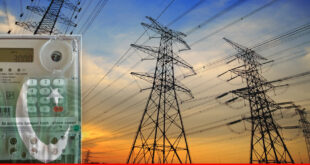Power shortages have hit the business community like a sharp axe. Internet presently is perhaps the lifeline of Pakistan, but even that is suffering without power and the Government of Pakistan seems to be powerless to do anything about it. Last month the Punjab-provincial ministry had made some ambitious commitments to decline the energy load shedding and removing the power shortages. The apparent power shortage in the country has hampered growth and has also given increase to a number of challenges in meeting unemployment, stoppage of core necessities of life and other problems. Various people might as well forget that they have something known electricity.
It is actually unfortunate that despite the very observable energy crisis no concrete steps have been taken by the concerned authorities in the previous era. Punjab-province consumes approximately 68 percent of the energy generated and with constant crisis over a period of time; various industrial units have closed giving increase to unemployment rate. Also increasing costs of energy are making it expensive for the citizens.
Pakistan thermally produces approximately 65 percent of its energy. This is obviously a luxurious way to generate power. The government of Punjab has presently planned to earmark places where coal based energy production projects could be organized. The agenda is to produce reasonable power for the citizens. The country’s energy requirements will increase to 26,000mw by 2020. Only approximately 10,000mw could be generated through coal. Even the wide coal reserves of Thar, Lakhra and other sites are not used to their full potential.
Punjab-provincial energy ministry reported that the Government of Punjab was energetically utilizing all possible resources to conquer energy crisis.
|
WAPDA: EXISTING GENERATING CAPACITY
|
||||
|---|---|---|---|---|
|
TYPE OF GENERATION |
INSTALLED CAPACITY |
DERATED /DEPENDABLE CAPACITY |
AVAILABILITY (MW) |
|
|
SUMMER |
WINTER |
|||
|
Hydro (WAPDA) |
6902 |
6902 |
Min 3340 |
1521 |
|
Max 6902 |
4874 |
|||
|
Hydro (IPPS) |
195 |
195 |
Max 195 |
195 |
|
GENCOs |
4829 |
3580 |
Max 3250 |
2960 |
|
IPPs |
8678 |
7955 |
Max 5340 |
5230 |
|
Nuclear |
665 |
615 |
Max 615 |
615 |
|
Wind |
106 |
106 |
40 |
40 |
|
Total |
21375 |
19353 |
Min 12700 |
10227 |
|
Max 16302 |
13874 |
|||
Bio-energy is a versatile source that can be utilized to meet energy problem besides making a substantial contribution to weather alter phenomenon. Biomass energy had a potential to shift a broad variety of wastes into clean power. Bio energy could play a vital role in generation of carbon-neutral fuels of high quality and address various ecological challenges. Biomass fuel sources are readily obtainable in urban and rural regions in the entire country. It is also said that not only the solar energy but a number of wind power plants were in the pipeline. It is also revealed that worldwide, the coal component shares 40 percent in electricity production. Presently in Punjab, there is a supply-demand gap of about 4,000mw which is rising at a rate of 6 percent yearly.
Circular Debt
Water and Power Ministry reported that the circular debt and low recoveries by Discos are problems for the government. GoP’s measures of developing energy production plants based on coal and R-LNG (Regasified Liquefied Natural Gas) has sparked a lot of interest of the local as well as international financiers’ community. While working is in progress on options such as wind, hydel and solar for energy production, it is also said that the government is also taking new measures on priority to produce energy from LNG and coal. Moreover Ministry of State for Water and Power has reported that there is unscheduled load shedding of energy in those regions where GoP is facing 80 to 90 percent losses.
WAPDA
WAPDA (Water and Power Development Authority) is a government-owned public utility maintaining power and water in the country, although it does not control thermal power. The authority includes Mangla dam and Tarbela dam among its resources and is one of the largest employers of human resources in the country. Over the eras the authority has built-up a reservoir of technological know-how and skill which has made it a unique and progressive organization.
Conclusion
No doubt, the country has been facing substantial crisis in the energy sector and the province of Punjab is no exception. Bio-energy is good for the environment and good for energy. I hope that the government of Pakistan would succeed in removing load shedding from the country during the coming 3-year.
 PAGE Blog Business Weekly Magazine
PAGE Blog Business Weekly Magazine
